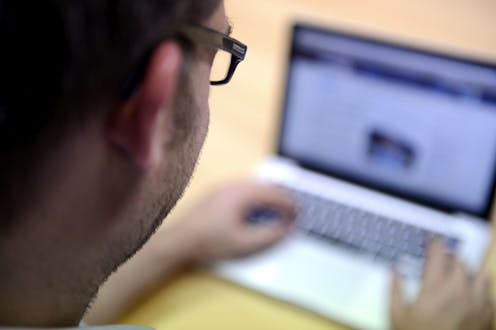coronavirus shows again why we value expertise when it come to our health
- Written by Aaron Martin, Associate Professor, University of Melbourne

The viral spread of mis- and disinformation about the coronavirus pandemic, just like the viral spread of the disease itself, has led to unprecedented media coverage. This has included a welcome return to prioritising expert knowledge.
Amid widespread criticism of the sharing of “fake news” about coronavirus, seven of the world’s most influential technology companies have banded together to prioritise the public health messages of experts. Companies such as Facebook and Google have now committed to “elevating authoritative content on our platforms and sharing critical updates in coordination with government healthcare agencies around the world”.
As the death toll from COVID-19 has climbed, the world’s technology giants have faced the same question confronting all of us: who to turn to for information, and how much trust we have in that information.
To better understand questions of public trust, the University of Melbourne’s Policy Lab last year conducted a representative survey of 1,000 Australians.
In this survey, we asked where people would turn to get information about a health problem. Respondents nominated their “local doctor” and “24-hour nurse hotline” to be among the most important sources of information.
We then asked which of the sources were the most trusted. Respondents listed their local doctor as number one, the 24-hour nurse hotline number two and the public hospital website as number three.
Given escalating attacks on experts in recent years, the survey findings reveal a rare piece of good news for evidence-based knowledge in the so-called “post-truth” age. Our findings suggest medical experts and public authorities remain the most frequently turned to, and trusted, sources of information when it comes to health.
Another Policy Lab study from 2019 arrived at the same conclusion. That peer-reviewed research found Australians were much more likely to support a health policy intervention put forward by “medical scientists” than if the same policy was put forward by “the government in Canberra”.
This finding sits well with the Australian government’s decision in March that the group of Chief Medical Officers around the country – known as the Australian Health Protection Principal Committee or AHPPC – would be “the paramount source of medical advice to the nation”.
Together with the establishment of a unique “war cabinet” called the National Cabinet, the nation’s chief medical officers are the principal source of advice to state and federal governments.
And while there may be differences of approach between experts, it is within the confines of expertise, rather than random online opinions, that debate is best had in times of medical emergencies.
Like other national studies this decade, our survey showed that Google searches and social media were among the most used sources of information. Yet, when we asked how much they trusted these sources, participants nominated Google and social media as the least trusted sources.
Social media and online discussion plays a central role in public communication about coronavirus. But they are also a source of mis- and disinformation that can ramp up public fear and – even worse – be a source of dangerous, unqualified advice. The decisions by technology companies to prioritise experts is an important step forward in a world awash with untrustworthy information.
The headline finding of our research is that most Australians turn to and trust medical experts, such as doctors, when a health concern arises. For everything that is said about the “death of expertise”, doctors and scientists appear to hold an esteemed position in society — at least when it comes to health.
There are clear policy implications that stem from this.
The first is that health seems protected from the erosion of trust that has affected other areas of society. This may be because health professionals’ objectives are easy to understand – to save lives.
Secondly, while governments and health authorities play a vital role in countering public misinformation, they no longer have the stage to themselves. This is a shift from when journalists were the main gatekeepers able to prioritise authoritative sources.
This new reality requires a delicate balancing act from our experts and leaders in which they must try to communicate risk while mitigating the harm that such information can cause when communicated in a selective way through various platforms.
Thirdly, as we are now seeing, tech companies such as Google and Facebook are realising they can no longer avoid making decisions about when to censor online information that may be harmful to its users.
This is obviously a thorny issue as censorship goes against democratic values. Facebook chief Mark Zuckerberg has warned about the dangers of his company becoming the “arbiters of truth” in the absence of government regulations.
Yet, coronavirus has reminded all of us that how information circulates on these online platforms is now, quite literally, a matter of life or death. It is significant that the technology companies that have resisted censoring political disinformation, that arguably harms the democratic process itself, have agreed to band together to censor disinformation about coronavirus.
Those who have attacked the “establishment” and “experts”“ in recent years are the same people now looking to medical experts for advice.
To paraphrase Mark Twain, it would appear that the death of expertise has been "greatly exaggerated”.
Authors: Aaron Martin, Associate Professor, University of Melbourne




